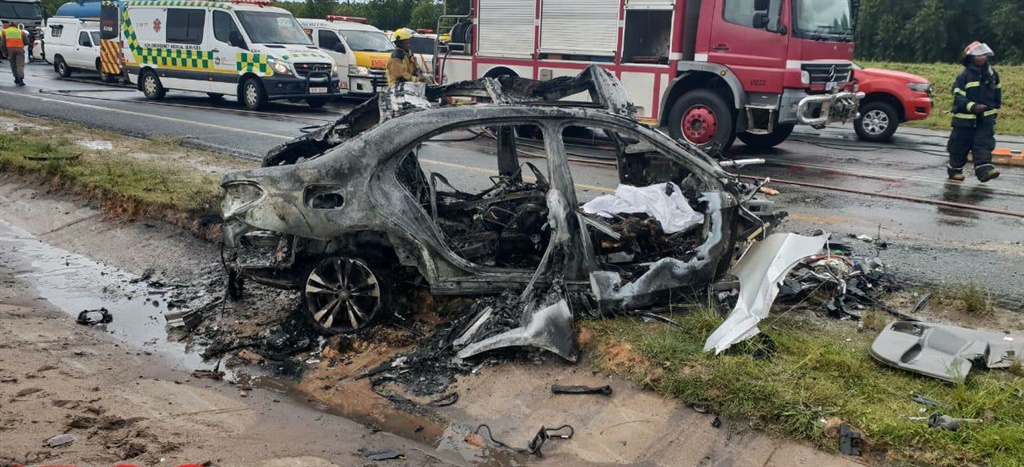
A few weeks ago our country’s transport department came out smoking and it was not on the newly decriminalised herb. Tired of the perennial loss of lives on our roads during the festive season, the die was cast.
The long-awaited traffic demerit system legislation, which had been shelved for a while because of logistical concerns, is now ready to be implemented.
A motorist who accumulates 12 demerit points, which an average taxi driver can achieve within one month, will lose his or her driving licence.
The move is somewhat premature but it was an opportune moment to add to the cacophony of outrage that always follows the type of carnage we have on our roads. In the past festive season 767 people died – an increase of 16% on the previous year.
This is an annual ritual with no relief in sight for the foreseeable future, despite expensive campaigns. Despite all this noise and cost, our traffic casualties easily rival those occurring around the world’s trouble spots racked by battle and warfare.
Under any other normal governing dispensation, this could easily rank as a situation requiring the declaration of a state of emergency.
It’s my humble opinion that carnage on our roads will continue unabated year after year until Jesus returns, if he is still coming.
The reason, though simple to decipher, continues to elude those in authority. Fingers are pointed at drunk drivers, unroadworthy vehicles, speedsters, boorish road behaviour and inebriated jay-walking pedestrians. Our authorities’ answer to all this is predictably consistent – more rigorous application of traffic laws.
More drunk drivers being apprehended at roadblocks behind the wheel take up the evening television news. Some of our celebrities caught racing on our roads as if they were on the track get locked up as a warning to ordinary drivers out there – that the long arm of the law will eventually get them. The traffic demerit system fits within this mind-set hand in glove.
I am not trivialising the notion that the above-mentioned factors contribute to death and mayhem on our roads, but they are merely contributory and not the main cause for the road carnage.
The major cause of our road fatalities is more structural in nature. The main cause of so many deaths and injuries on our roads during the periods in question is that thousands, if not millions, of vehicles find themselves on the roads at the same time.
As a country, South Africa, courtesy of the apartheid past, remains a migratory nation that travels periodically in huge numbers to and from the main urban and employment centres. Come the holidays these are unleashed on to our overused roads with disastrous consequences.
Simple logic should deduce that too many vehicles on our congested roads will mean increased instances of crashes, many ending in fatalities. Note also that most road fatalities occur in the outgoing trip in December, when road congestion is at its highest.
Aggravating the situation is that our public mass transportation system is hopelessly inadequate.
Government needs to look seriously into the prospects of further decentralising the economy so that most citizens can find meaningful income-generating employment nearer to their places of original abode.
This will stop the annual pilgrimage of worker migration from other parts of the country to the main economic centres of South Africa.
It was probably an act of blunder disguised as political correctness when, post-1994, the industrial parks established by the former apartheid government in the so-called homelands were allowed to degenerate and were mothballed. This inevitably resulted in an influx into main industrial centres with commensurate overcrowding and the mushrooming of settlements.
Yet another faux pas was legislation for gambling casinos to relocate from the former homelands into main cities, such as Pretoria and Johannesburg. This is contrary to international best practice where casinos have been identified for their developmental aspect and are thus located in resorts and remote outlying areas.
Economic decentralisation can become the future solution.
In the short term, government should look at our national road infrastructure. Our freeways have these sections where they have been narrowed, doing away with the islands that usually exist on such road types.
This resulted in giving drivers on that stretch of road very little margin for error.
Lastly, government should rather look at providing other means of transportation that will not further burden our road network. Here I am talking about introducing efficient metropolitan and long-distance trains. What is lacking in our train travel now is the high-speedelement of it.
Finally, South Africa should go back to trams for intercity travel. This will be a cheaper and environmentally friendly means of travel within towns and cities, as global warming is fast becoming a reality.
In most South African cities the tramways infrastructure in the form of rail tracks still exists. With an efficient, safe, cheaper and reliable mass transportation system in place, our roads will become less crowded and stop being the killing fields to which they have been reduced.
Maisela is a published author and management consultant
TALK TO US What do you think of the demerit system? Will it help to stop the carnage on our roads?
SMS us on 35697 using the keyword CRASH and tell us what you think. Please include your name and province. SMSes cost R1.50. By participating, you agree to receive occasional marketing material




 Publications
Publications
 Partners
Partners








